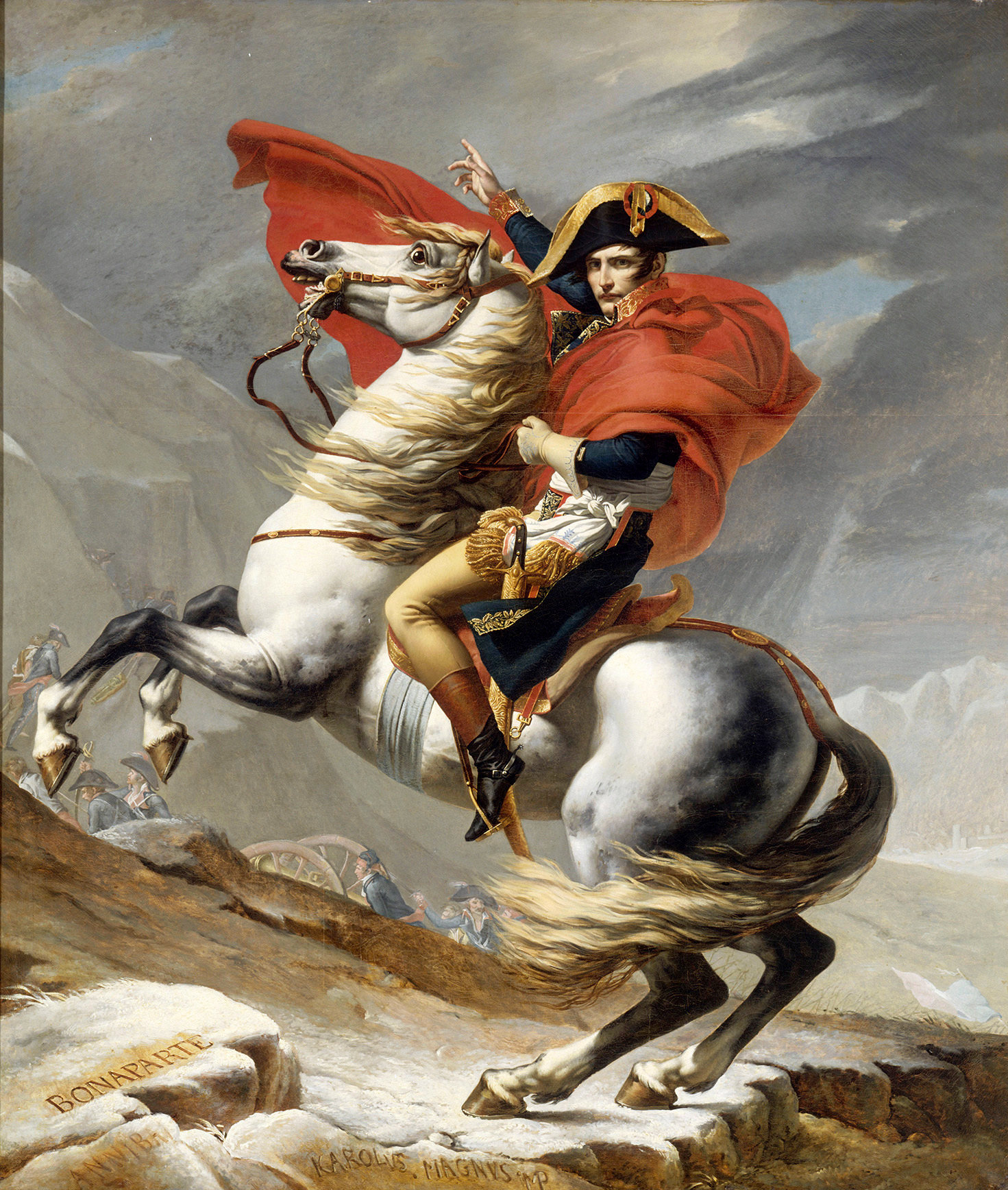
Pride goes before a fall and a haughty spirit before destruction. — Never have truer words been written especially when considering military leaders. This was almost without fail the one constant in all of these military blunders. Napoleon brushed off any concerns regarding the long odds of success in his bid to conquer Russia by saying,
“Is there any man blind enough not to see that destiny directs all my operations.”
In the end, 90% of his 500,000 man army perished. The French empire never recovered.
Marcus Crassus, the Donald Trump of the Roman Empire, suffered from a similar infection. He left off his wildly successful business and political ventures to become a military general. His contemporaries were Julius Caesar and Pompey the Great, and he could not match their glory through shrewd business maneuvers. He needed to add “military conquest” to his resume to get to their level. So he went off to conquer the Parthians. It was doable If he listened to his generals, and attacked from the north with the help of the Arminians, but he wasn’t willing to share any glory. So instead he blindly marched his troops straight into the desert, where he and they were cut to pieces by the well prepared and more mobile Parthians.
General George Custer was similarly afflicted when he arrogantly remarked, “We can kill any number of Indians” That’s why he divided his group up into 3 terribly small segments to more effectively track the Indians and press his attack. He wasn’t worried about the massive number advantage the Indians possessed. He should have been.
There is a fine line between brilliant confidence and foolish arrogance. I suppose if one wins it’s considered the former, but if one loses it’s the latter.
One of my favourite stories
The southern army of China was in desperate need of arrows for their war effort against the mighty Northern Chinese general Cao Cao. The South filled up several military ships with hay covered tightly in canvas and travelled up the river to “confront” Cao Cao’s army which was camped along the shore. As the boats passed by Cao-Cao’s army showered them with arrows. Arrows by the thousands lodged themselves safely in the hay and canvas as the ships went back and forth. After a short while, the ships left looking more like pin-cushions than anything but the mission was a complete success. The south had collected enough arrows to fight another day.
Appointments based on ability, not heredity.
This was Genghis Khan’s great idea and a significant reason for his success. He chose generals based on their abilities, not their birth. — His greatest general was a non-Mongol son of a lowly blacksmith, but he won for Genghis 65 major battles and defeated 32 different nations. Napoleon might have succeeded in Russia had he not given a high command to his inept brother.
Wars are about greed. Greed feels too wrong to justify a war, so every war needs a pretext.
The Crimean war got its start over an argument about who was supposed to have the keys to the holy church in Bethlehem. Was it the Russians (Eastern Orthodox) or the French (Roman Catholic)? Can’t get it sorted? Let’s have a war. Truthfully, the Bethlehem thing was a pretext. The Ottoman Empire was dying for decades it had been the “sick man of Europe,” and England, France, and Russia were looking for any excuse to greedily carve it up, like vultures on a dying wildebeest. The war was never really about which priest would get the keys to the church in Bethlehem, it was fundamentally about greed as wars are.
You need to know what you are up against!
The Battle of Cartagena was not one of the finest moments for the British empire. Infighting, between the navy and the army, didn’t help at all, bad planning, miscommunication, and disease also made things increasingly worse for those fighting under the banner of the union jack. But the entire bungling story was captured perfectly in the final episode of events. The Brits wanted to storm the walls of the city at dawn, but they got lost in the night, and then their porters deserted them, when they finally arrived at the walls, late and exhausted the beleaguered soldiers ran forward with their scaling ladders only to find out that they were all ten feet to short!
Failure to realize that in war pragmatism is king.
The French needed to put down a shopkeepers rebellion to the north in what is now the Netherlands. It should not have been a problem. The French had an advantage 600 knights to 50, and they also had supportive foot soldiers equipped with crossbows in abundance. Also, the shopkeepers were trapped, they had barricaded themselves on a small strip of land with marshy soil in front and a river behind. The job was simple. Have the crossbowmen pick apart the rebels from a distance, and then have the knights storm in and mop things up. “No sir!” said the knights, knights don’t do the mopping, they do the killing. So instead the knights did a full charge on marshy soil, and got bogged down, the immobile, weighed down knights, need deep in mud gave the lighter more mobile rebels with their long pikes a complete advantage. The French were slaughtered, and the victory led to nationhood for the Netherlands.



